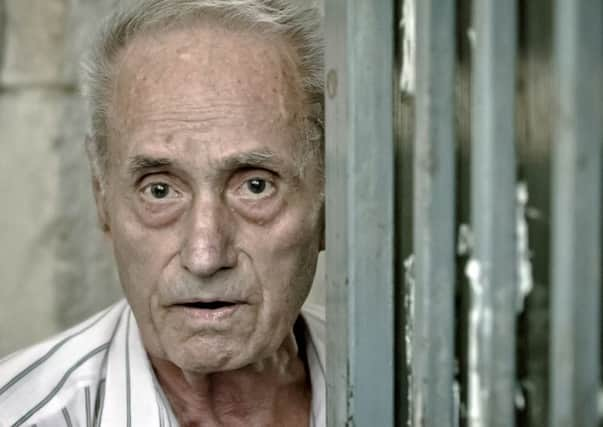Communist-era prison chief jailed for rights abuses


Unless an appeal court alters the sentence Alexandru Visinescu, 89, will probably die behind bars for his involvement in the deaths of 12 people at the infamous Ramnicu Sarat prison, which he commanded from 1956 to 1963. He was spared a life sentence owing to his advanced age.
It is the first time since Romanian dictator Nicolae Ceaucescu was executed in December 1989 that a former senior member of the Communist security apparatus has been tried, convicted and sentenced for their crimes.
Advertisement
Hide AdAdvertisement
Hide AdMany top-ranking Communists survived the transition to democracy and enjoyed a comfortable life as Romanians sought to build a new country and had little time, or will, to open old wounds, making Visinescu’s conviction exceptional.
“The sentence is late but nonetheless it is a moral victory for Visinescu’s victims,” said Anca Cernea, a civilian plaintiff in the case, whose father and grandfather had both been incarcerated at Ramnicu Sarat.
Another relative of a former inmate vented her frustration at the time it had taken for justice to run its course.
“It has come very late, but there’s nothing I can do about it,” she said. “It’s not my fault the Romanian justice system only got around to this case in 2015. But, to be honest, I didn’t even think there would even be a trial.”
During the trial Romanians heard how Visinescu had built a system that “led to the physical destruction” of inmates, most of whom were political prisoners who were treated with particular brutality by the system.
“The death of prisoners came from a slow but effective process during which they were tortured physically and mentally,” prosecutors said. “The sick were not treated or transferred to hospitals; the prisoners’ health was damaged by a lack of food, lack of heat, abusive punishments, and they were also subject to inhuman detention conditions, beatings and violence.”
Valentin Cristea, the last surviving inmate of Ramnicu, testified in court saying he had weighed 71 kilograms when he entered the prison but only 51 (from 11 stone to about 8) when he left. He also provided details on the punishing regime. Prisoners were held in solitary confinement, not allowed to talk with each other and were let out alone for a 15-minute walk each day. Even then they were forbidden to look at the sky, could only walk in circles, and any transgressions resulted in harsh punishments from the guards.
He recalled how he had been punished twice for trying to tap out Morse code messages, his only form of communication with other inmates.
Advertisement
Hide AdAdvertisement
Hide AdThe brutal system made it hard for political prisoners to survive as many of them carried lengthy ten-year sentences. During the trial Visinescu rejected the charges, and claimed he was only following orders.
Romanians will hope his sentence will set a precedent and lead to further trials that might provide some recourse for the thousands of people, or their families, who suffered during the Communist era. Some 617,000 people served jail time as political prisoners during the years 1947-89, and around 120,000 died behind bars. Hundreds of thousands of other Romanians suffered from other forms of punishments, repression and sanctions handed out by system that clamped down with impunity on anybody it regarded as a threat.